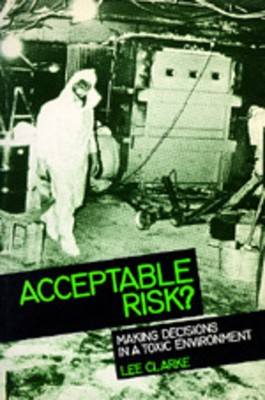
- We will send in 10–14 business days.
- Author: Lee Clarke
- Publisher: University of California Press
- ISBN-10: 0520076575
- ISBN-13: 9780520076570
- Format: 15.3 x 22.7 x 1.7 cm, softcover
- Language: English
- SAVE -10% with code: EXTRA
Reviews
Description
Organizations and modern technology give us much of what we value, but they have also given us Chernobyl, Three Mile Island, and Bhopal. The question at the heart of this paradox is "What is acceptable risk?" Based on his examination of the 1981 contamination of an office building in Binghamton, New York, Lee Clarke's compelling study argues that organizational processes are the key to understanding how some risks rather than others are defined as acceptable. He finds a pattern of decision-making based on relationships among organizations rather than the authority of individuals or single agencies.
EXTRA 10 % discount with code: EXTRA
The promotion ends in 17d.05:27:43
The discount code is valid when purchasing from 10 €. Discounts do not stack.
- Author: Lee Clarke
- Publisher: University of California Press
- ISBN-10: 0520076575
- ISBN-13: 9780520076570
- Format: 15.3 x 22.7 x 1.7 cm, softcover
- Language: English English
Organizations and modern technology give us much of what we value, but they have also given us Chernobyl, Three Mile Island, and Bhopal. The question at the heart of this paradox is "What is acceptable risk?" Based on his examination of the 1981 contamination of an office building in Binghamton, New York, Lee Clarke's compelling study argues that organizational processes are the key to understanding how some risks rather than others are defined as acceptable. He finds a pattern of decision-making based on relationships among organizations rather than the authority of individuals or single agencies.


Reviews